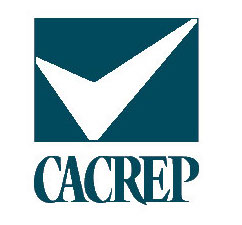Doctor of Philosophy
PhD in Counselor Education & Supervision (Low-Residency)
Counselor Education Degrees
The low residency PhD program in Counselor Education and Supervision (CES) is a 72-credit doctoral degree program designed for counselors who wish to enhance their professional competencies in research and evaluation, supervision, teaching, leadership/advocacy, and counseling. As a low residency program, this PhD is primarily composed of online coursework with two four-day residencies. Now accredited by the Council for Accreditation of Counseling Related Education Programs (CACREP), this degree is designed to prepare doctoral students for advanced competency in, a) graduate-level teaching and counselor training, b) research and contributing new knowledge to the field, c) counseling supervision, d) leadership and advocacy, and e) multicultural sensitive counseling practice.
This program is NOT designed to lead to state licensure. This degree is offered by Antioch University's Seattle campus.
Degree Program Overview
The goal of the program is to expand student abilities in adult learning pedagogy specific to counselor training and supervision while developing critical thinking skills toward a focused research agenda. With a greater emphasis on multicultural counseling competence, the program will also equip students with the leadership and consultation skills needed to address community and institutional inequities and racism consistent with a social justice counseling orientation. These goals are accomplished through a combination of required coursework, practical experience, and a supervised internship. Developed with the working professional in mind, the PhD in CES is a unique low-residence, three-year, and year-round cohort model. In addition to the online coursework, students will attend two four-day residencies (winter and summer quarters) per academic year, in Seattle (Summer) and Santa Barbara (Winter). The residential experiences will provide opportunities for intensified face-to-face training and supervision, community enrichment, and a seminar format for rich discourse and meaning-making. This collective experience is consistent with an infused emphasis on multicultural discourse, resilience, civil enrichment, and social justice. As such, active learning through service delivery and research is emphasized as well as an integration of the following curricular themes:
- A counselor education curriculum that exceeds national and state standards by requiring core coursework in advanced clinical practices, supervision, trauma, and crisis response, ethical and legal issues, advocacy and social justice, and counselor education specific to counselor training, program development, assessment, and outcome evaluation.
- A multicultural emphasis on leadership and supervision encouraging a multicultural counselor identity that seeks an appreciation of diversity and human growth in context to social dynamics while also advocating for community justice, equity, and civil discourse. This is concurrent with an emphasis on systemic leadership, and supervisory skills needed to assist with organizational change and transformation.
- A research model that emphasizes not only the rigor of quantitative and qualitative methodologies consistent with doctoral-level inquiry but also program evaluation procedures and outcome-driven decision-making related to “best practices”.
- A competency-based program where adult learners are invited into collaborative learning experiences and placed into their roles as professional counselors, counselor educators, supervisors, and systemic leaders early and frequently focused on reflective practice, experiential learning, and shared inquiry.
- A cognate area of Multicultural Discourse, Resilience, and Civil Enrichment focused on the skills and knowledge competencies needed for bringing diverse individuals and groups together in ways of knowing, understanding, and enriching the communities in which they live.
- A low residence and cohort model tailored to the working professional seeking to expand their scope of practice while maintaining residence in their home state. In addition to the online coursework, students will attend two four-day residencies, either in Seattle or in additional locations that may be named later. The CES faculty will also assist students in completing their required fieldwork in their home state.
- Professional Mentoring to assist students toward the role induction of counselor educators and supervisors by partnering with experienced faculty throughout their tenure in the program.
This program is NOT designed to lead to state licensure.
Doctorate Degree in Counseling Requirements
Program Length: Students with a master’s degree in counseling from a Council of Accreditation for Counseling and Related Educational Programs (CACREP) accredited program (or equivalent) may be able to transfer up to 72 quarter credits towards this 144-credit doctorate program in Counselor Education and Supervision. Requirements: The rigorous academic PhD curriculum is designed based on the national standards for counseling education as recommended by the Council of Accreditation for Counseling and Related Educational Programs (CACREP), as well as those standards consistent in the clinical practice and supervision of creative arts counseling (e.g. art therapy, drama therapy, play therapy, etc.).
Coursework
First Year
- COUN 7200: Advanced Clinical Theory
- COUN 7610: Professional Identity, Leadership, Liberation & Multicultural Discourse
- COUN 7340: Global Mental Health Issues & Professional Sustainability
- COUN 7100: Research in Counselor Education
- COUN 7120: Research Methodology: Quantitative
- COUN 7400: Multicultural Supervision
- COUN 7140: Research Methodology: Qualitative
- COUN 7300: Instructional Design & Adult Learning
- COUN 7980/7981: Practicum/Case Consult
- COUN 8000/8010: Internship/CES Supervision
Second Year
- COUN 7980/7981: Practicum/Case Consult
- COUN 7440: Advanced Legal & Ethical Issues
- COUN 7620: Civil Enrichment, Public Policy, and Resilient Narratives
- COUN 7420: Advanced Counseling Supervision
- COUN 7520: Consultation & Organizational Change
- COUN 7210: Advanced Group Counseling
- COUN 7220: Advanced Trauma Counseling & Crisis Response
- COUN 7320: Counselor Education & Clinical Training
- COUN 7180: Program Development and Evaluation
- COUN 8000/8010: Internship
Third Year
- COUN 7500: Advocacy, Social Justice
- COUN 8000/8001: Internship
- COUN 8950: Advanced Professional Seminar & Inquiry
- COUN 8100: Dissertation
For detailed curriculum, degree requirements, and course descriptions, please visit the Antioch University catalog.
CES Research
Career Outlook
The PhD in Counselor Education and Supervision at Antioch University Seattle the most comprehensive degree of its kind in the state of Washington. This program provides professional counselors with the degree, knowledge, and credentials to become counseling educators and leaders in the field of mental health. It is designed to prepare counselors for advanced competency in:
- Graduate-level teaching and counselor training
- Research and contributing new knowledge to the field of counseling and mental health
- Counseling supervision
- Counseling Leadership
- Professional Counseling
- Learning Outcomes
- Diversity and change
- Counselor Education
- Counseling Supervision
- Advanced Counseling Practice
- Counseling and Mental Health Research
- Leadership and Advocacy of Counseling and Mental Health
- Creative Arts Therapy
Accreditation
 Antioch University Seattle's Counselor Education and Supervision (CES) program is now accredited by the Council of Accreditation for Counseling and Related Educational Programs (CACREP). As the "gold standard" in counselor education, this accreditation is a recognition of the quality and standards of Antioch University Seattle's CES program and as such provides particular distinction to students and alumni when seeking licensure and employment.
Antioch University Seattle's Counselor Education and Supervision (CES) program is now accredited by the Council of Accreditation for Counseling and Related Educational Programs (CACREP). As the "gold standard" in counselor education, this accreditation is a recognition of the quality and standards of Antioch University Seattle's CES program and as such provides particular distinction to students and alumni when seeking licensure and employment.
Admissions / Cost / Aid
Admissions
How to Apply
- Complete the online admissions application
- Applicants must have completed a master’s degree in counseling or a closely related field that includes the competency areas required by the Council for Accreditation of Counseling and Related Educational Programs (CACREP). Those areas not covered in the student’s master’s program or through continuing education must be addressed with their doctoral plan of study. Submit official transcripts from ALL colleges/universities you have attended to the Admissions Office. Transcript evaluations are required for all coursework completed outside of the U.S. or Canada (except Quebec). See the Transcript Evaluation section on International Students webpage for details.
- Two letters of recommendation: one from a professional who supervised you in a clinical or academic setting; one from an academic instructor who can best assess your capabilities and readiness to enter a counseling doctoral program. Recommendations from friends or relatives are not acceptable.
- Current resume/CV detailing educational, work, and volunteer experience as well as relevant skills. Include documentation of professional affiliations, publications, and licensure.
- Prerequisite course, Introduction to Statistics (or other statistics course) completed within 10 years with a minimum grade of B.
- Admission Essay. Submit a typewritten, double-spaced, one- to two-page response for each question and clearly number your response for each question: 1. Why are you interested in pursuing a doctorate in Counselor Education and Supervision? 2. In what ways has your academic and practical experience prepared you for becoming a counselor educator and supervisor? What do you see as your potential strengths and areas of growth? 3. Why do you wish to attend Antioch for your doctoral study? What will be your areas of greatest challenge in undertaking doctoral study at this time? What forms of support will you use to meet those challenges?
- International Students have additional admission requirements. See the International Students page for details.
- Select applicants may be invited to participate in an interview with faculty.
Requirements
Applicants are assessed for judgment, potential, cultural sensitivity, and openness, not achievement alone. Admitted students enter an educational environment that emphasizes rigor, nurtures a desire to learn, and fosters collaborative relationships between faculty and students. To enter the program, applicants must have completed a master’s degree in counseling or a closely related field that includes the competency areas required by the Council for Accreditation of Counseling and Related Educational Programs (CACREP). Those areas not covered in the student’s master’s program or through continuing education must be addressed with their doctoral plan of study. Furthermore, Doctoral candidates are also expected:
- To be license eligible as a counselor (LMHC)
- To have achieved a master’s level of competency in counseling or other mental health fields of practice (e.g., couples and family therapy, clinical social work, or creative arts therapies)
- To have the potential to write at a scholarly level
- To enter the program with competency in the use of technology.
Finally, applicants to the program must demonstrate a commitment to and capacity to work with individuals from diverse backgrounds and adhere to the American Counseling Association Code of Ethics.
Application Deadline
In sensitivity to the demands of working professionals seeking doctoral study in counselor education and supervision, the CES faculty adhere to a rolling admission process. At any time prior to the deadline, as completed files are submitted, they are reviewed, and if screened successfully, interview times are scheduled. Admission decisions take roughly 3 weeks.
| The next start term will be Spring 2026. | |
|---|---|
| Semester | Application Deadline* |
| Spring (January 2026) | November 1, 2025 |
| Fall (August 2026) | June 15, 2026 |
| *Complete admission files (all required documents) received after the Deadline date may be considered if space is still available for that quarter. | |
| Please review the Academic Calendar for additional details. | |
Scholarships and Fellowships
CES Fellowships: These positions are available to second-year PhD students in the CES program. There are two fellowships available (Research and Social Justice) and are one-year appointments.
Cost
| PhD in Counselor Education & Supervision (Low-Residency) | |
|---|---|
| Cost per Credit | $944 |
| Full-Time Credits per Quarter | 6 |
| Total Program Credits | 72 |
| View the Cost of Attendance Components | |
Financial Aid
Financial Aid is also available to most students. LEARN MORE
Upcoming Events
Recent News
-
S8 E2: Therapists Are Using Creative Writing to Treat Complex PTSD—and Build Resilience
on April 2, 2025
-
“Exploring Viability in Help-Seeking Attitudes and Preferences Among Black Christian Churchgoers: A Case for Interprofessional Collaboration Between Black Churches and Mental Health Professionals” | Dissertation Watch
on April 1, 2025
-
Protective Behavioral Strategies and Negative Consequences of Alcohol Use Among College Athletes | Dissertation Watch
on March 28, 2025

